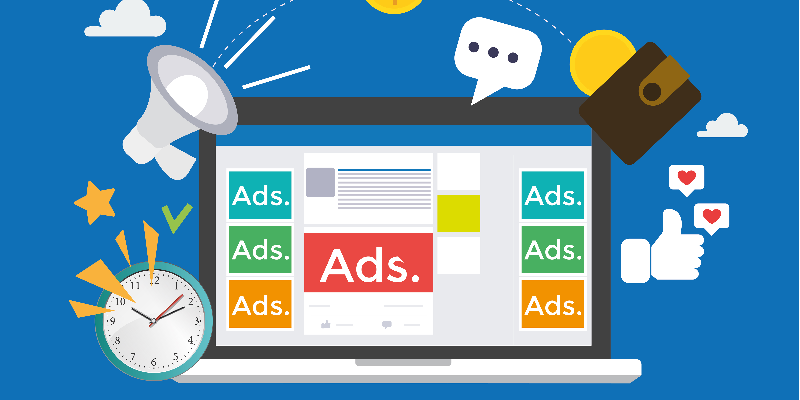

The Indian property market is a competitive one, and in such an environment, developers are always willing to find the most effective advertising mix in order to create interest, value for the brand, and collect leads. Two popular channels—online ads for real estate and outdoor ads for real estate projects—often come into focus. But so, which one really works best?
Both of these media are thoroughly examined in this blog by analyzing their benefits, shortcomings, and applications to assist you as you choose effective options in marketing strategy.
Regarding the comparison, prior to the comparison, it is important to know the advertising environment. The housing industry in the cities of India is on the boom, with increasing middle-class incomes and inflation of people into the cities, and a change in lifestyle expectations. It is all about visibility, whether it is in luxury apartments, plotted developments, or commercial space.
In the current world, consumers are not only computer literate but are also greatly receptive to environmental stimuli such as hoardings, banners, and billboards. Therefore, are real estate developers to take their digital advertising to the next level or maintain their allegiance to proven outdoor advertising?
Outdoor ads for real estate projects like hoardings, metro panels, bus shelters, and building wraps offer constant visibility. These formats occupy locations that receive high traffic since the potential buyers reside, work, or travel in these areas. Be it a roadside board or a prime location billboard at the heart of Bangalore or Mumbai, such ads instantly remind us of brands.
Outdoor advertisements have continued to be linked with brand dominance in the minds of many Indian purchasers. A wide-format advertisement placed in a prime place means the kind of financial power, reliability, and stability that is vital in property investment.
With outdoor advertising, it is possible to hyper-target. When your project is based in Whitefield, Bengaluru, then it is a good idea to place hoardings within a radius of 5 -10 km to reach people who live in that area, as well as daily commuters.

Still, when strategically placed, outdoor ads for real estate projects remain effective for mass branding and immediate area-based impact.
With online ads for real estate, advertisers can target people based on age, income, geography, search intent, interests, and behavior. The real estate industry can serve ads about properties on sites like Google, Facebook, and Instagram, regardless of whether your recruiters are doing some research on high-end furniture or searching specifically for 3BHK apartments in Pune.
Compared to print and outdoor media, online ads for real estate are more affordable. With paid search, social media campaigns, and display networks, real estate companies will be able to create qualified leads with improved ROI.

You are able to keep track of impressions, clicks, the amount of time spent on landing pages, inquiries that will be made, and even the cost per lead. This transparency enables the developers and their marketing staff to maximize the campaigns in real-time.
From immersive 360° video tours to carousel posts showcasing amenities, online ads for real estate let you tell detailed brand stories that influence decision-making. User paths are also made more straightforward by connections with WhatsApp or a lead form.

Let’s break it down based on specific marketing goals:
| Marketing Objective | Best Option |
|---|---|
| Launch awareness in local areas | Outdoor ads for real estate projects |
| Lead generation & conversion | Online ads for real estate |
| Brand positioning for a premium image | Outdoor ads (high-end billboards) |
| Retargeting past website visitors | Online ads for real estate |
| Storytelling via visuals/videos | Online ads (YouTube, Instagram, FB) |
| Building presence near the site area | Outdoor ads for real estate projects |
An ideal marketing mix would integrate both, using outdoor formats for high-volume visibility and online platforms for conversions and analytics.
Luxury Property in Gurgaon: A real estate company created a billboard around Golf Course Road and ran geo-targeted Google Ads. Outcome? 3 x site visits in 1st 2 months.
Bangalore Gated Community Project: Outdoor billposts close to IT parks, along with meta lead ad targeting IT professionals, generated more than 1,000 high-quality leads in one ad campaign.
This is why working with an experienced Real estate advertising agency can help you plan smarter, synchronized campaigns that blend both formats.
The hybrid brand touch points that marry the traditional and digital touch points represent the best brand awareness strategy in 2025. Rather than making decisions between channels, the brands need to ensure cross-platform journeys that are smooth.
To cite an instance, a prospective customer, seeing a teaser ad on Instagram, may later spot a giant hoarding on the way to his office the following day, and then view the subsequent personalized ad on an over-the-top (OTT) channel in the form of a Google ad based on the profile of his internet usage pattern. It is a multi-touchpoint approach that boosts recall and the response rate.
And this is why integration works:
Real estate brands that combine their Online advertising and off-site advertising of real estate developments are better positioned to achieve higher visibility, stronger trust, and ultimately generate higher-quality leads.

In 2025 and beyond, outdoor ads for real estate projects will remain critical for physical presence and credibility, while online ads for real estate will continue to drive high-intent leads and trackable conversions. A reputed advertising agency with domain experience in real estate knows how to strategically place outdoor media and run performance-driven online campaigns.
The point is in integrated marketing, but not in the selection of one or the other. Partnering with a specialized performance marketing agency in India can help you balance visibility with results, awareness with action.
Are you ready to take your promotions in real estate to the next level? It is not a question of whether to go online or outdoors, but rather a matter of how to combine with an online strategy.